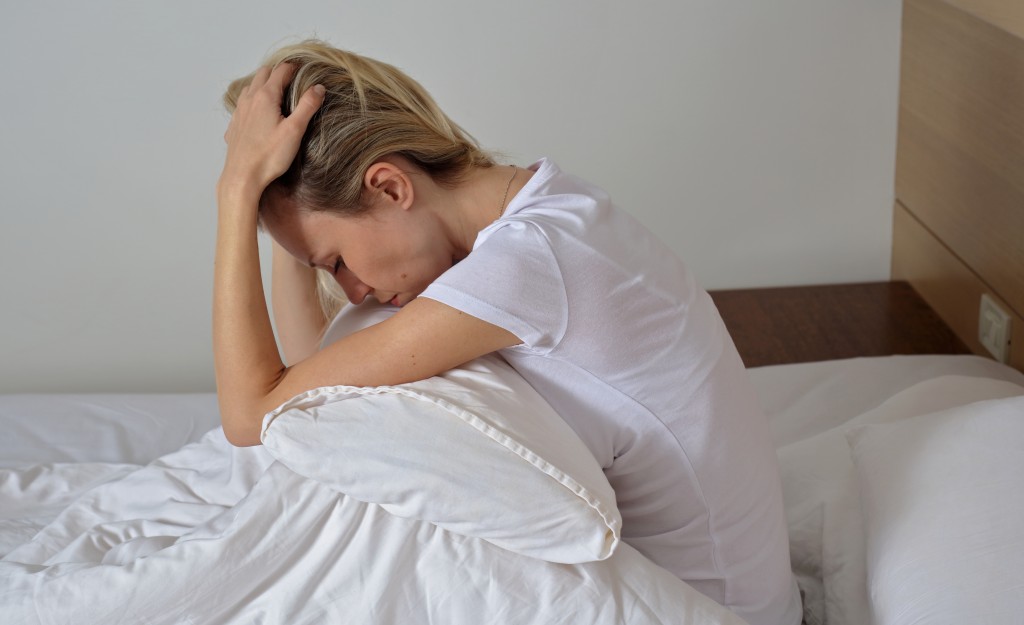Everyone has trouble sleeping now and then. However, if your troubles extend through long periods, there might be an underlying cause. The most common causes often have the simplest solutions, so you shouldn’t lose any sleep over them.
1. Uncomfortable Beds
The wrong mattress can prevent you from getting a good rest. Of course, there’s no such thing as the right mattress for everybody, as the way you sleep will dictate the proper mattress for you. If you sleep on your back, any firm bed will do. Just make sure it’s even all the way, and your sheets are clean. If you sleep on your stomach or your side, you probably need a softer bed. Opt for memory foam or a latex mattress.
You can even purchase a fancy pillow top for more comfortable nights. If you’re sharing the bed with a spouse or partner, it can get more complicated. Different sleeping positions can require different types of mattresses. However, a memory foam mattress coupled with contoured pillows should do the trick.
Temperature can also be an issue, as men and women have different ranges in comfort levels. If one of you likes it toasty and one likes it cold, you’ll need a comforter that separates the bed into zones, preferably one with its own cooling and heating systems.
2. Messed-up Rhythms
The body responds to certain stimuli to determine its active and rest phase. Your circadian rhythm or biological clock normally keeps you active together with the sun. However, certain factors can disrupt your body’s perception of time. Artificial lights, especially through computers, laptops, tablets, or phones, can trick your body into thinking the sun is still up. Days of constantly browsing on your phone can tilt your circadian rhythm, offsetting your body’s day and night phases.
Fortunately, resetting your clock only takes a few minutes of sun exposure. Get up at 6 am, or 7 am and bask in the warmth of the sun. The brightness will reset your biological clock and give you a healthy dose of serotonin. Repeat for 3 days, and your body’s circadian rhythm should be properly set. Of course, try to avoid using your phone a few hours before going to sleep to avoid disrupting your rhythms anew.
3. Stress-Induced Insomnia

Work-day stress can keep you up at night. Whether it’s negative interactions at the office or just a tiring day, stress and negative emotions can prevent you from getting a good night’s sleep. While most people will turn to meditation to relieve stress (and it is quite effective), exercise is a better alternative. Physical activity allows you to channel your negative emotions, allowing you to release them through exercise.
Tiring yourself out after a grueling workday might not seem like much sense, but if you’re not a professional athlete, most of the tiredness you feel is probably more mental than physical. You’ll find that a bit of exercise will actually give you a boost of energy, especially once the dopamine starts to kick in. Dopamine will balance your mood, preventing negative thoughts from dominating your mind. The extra activity also tires you out, making it easier to sleep a bit earlier.
4. Bed Bugs
Vampires might not be real, but these little critters will suck your blood as you sleep and may potentially leave you feeling like a zombie. Bed bugs are notorious for inducing insomnia. They bite anything they can sink their teeth on, so most of their bites will probably be on your face. Constant bed bug visits will put you at 5 times the risk of developing anxiety disorders and 2.5 times the risk of developing depression. If you find small drops of blood on your pillows or sheets or smell a coriander-like smell in your bedroom, it’s time to call the exterminators for a heat or chemical treatment in your bedroom.
5. Sleep Apnea
Sleep apnea is one of the most common causes of sleep problems, especially for overweight and obese individuals. Mild cases can be solved by merely sleeping on one’s side, but more serious cases require continuous positive airway pressure (CPAP) devices. Air is pumped into the airways via a mask that covers the mouth and nose.
CPAP devices will allow you to sleep through the night, but they won’t get rid of your sleep apnea. Surgeries can address the problem, but losing weight is a more permanent solution. Losing 10 percent of your body weight will alleviate most of the sleep apnea symptoms, and getting back to normal weight will cure it entirely.
Find what’s keeping you up at night and deal with it. Sleepless nights do more than lead to terrible days — and sometimes, the underlying reasons can be downright dangerous.



